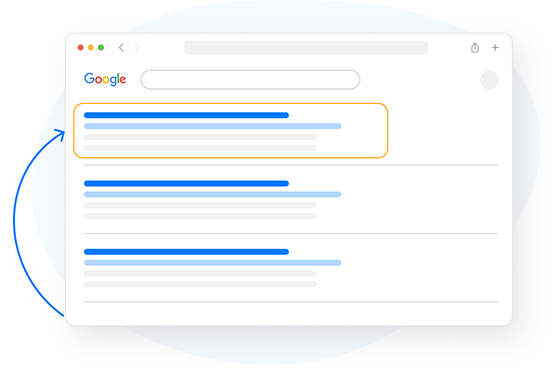
When it comes to optimizing your real estate investor website on the Investor Carrot platform, one of the most critical aspects is understanding and utilizing the right keywords. Keywords are the foundation of search engine optimization (SEO) and play a pivotal role in attracting organic traffic to your website. In this article, we will explore the importance of keywords in Investor Carrot SEO and provide valuable insights on finding and targeting profitable search terms to enhance your website’s visibility and lead generation potential.
Understanding Keywords and SEO:
Before delving into keyword research and targeting, it’s essential to grasp the concept of keywords and their significance in SEO. Keywords are specific words or phrases that potential sellers or investors might use when searching for real estate services or information online. Optimizing your Investor Carrot website with relevant keywords allows search engines like Google to understand your content’s relevance and rank it higher in search results.
Example: For a real estate investor specializing in buying distressed properties, relevant keywords might include “sell my distressed house,” “fast cash for distressed homes,” and “we buy ugly houses.”
Conducting Keyword Research:
The first step in targeting profitable search terms is conducting thorough keyword research. Utilize keyword research tools such as Google Keyword Planner, SEMrush, or Ahrefs to identify relevant keywords with high search volume and low competition. Focus on long-tail keywords (more extended, specific phrases) as they often have a higher conversion rate.
Example: Using a keyword research tool, you discover that the long-tail keyword “foreclosure properties for sale in [city name]” has high search volume and moderate competition. This insight prompts you to create content focused on foreclosure properties in that specific location.
Analyzing Competitor Keywords:
Analyzing competitor websites that rank well in search results can provide valuable insights into the keywords that are driving their success. Identify which keywords your competitors are using and assess whether you can create more valuable content around those keywords.
Example: After analyzing a competitor’s successful website, you find that they rank well for the keyword “sell my inherited house.” You realize that this keyword aligns with your target audience, and you can create informative content on the topic to attract motivated sellers looking to sell inherited properties.
Utilizing Local Keywords:
As a real estate investor, your business largely depends on local leads. Incorporate location-based keywords into your content, such as city names, neighborhoods, or even nearby landmarks. This practice can significantly improve your chances of ranking higher for location-specific searches.
Example: Suppose you are a real estate investor operating in the Miami area. Incorporate location-based keywords such as “we buy houses Miami,” “sell my house fast in Miami,” or “Miami cash home buyers” to target local sellers searching for quick property solutions.

Long-Tail Keywords and Niche Targeting:
Incorporating long-tail keywords and niche targeting can be incredibly beneficial for real estate investors. Long-tail keywords often have less competition and can attract highly motivated leads who are actively looking for specific solutions to their real estate problems.
Example: As a niche investor targeting multi-family properties, focus on long-tail keywords like “buying duplex for rental income” or “best cities for multifamily real estate investments.” These specific keywords attract potential sellers or investors with a genuine interest in multi-family properties.
Content Optimization with Keywords:
Once you have identified the relevant keywords, it’s crucial to optimize your Investor Carrot website’s content accordingly. Incorporate keywords naturally into your page titles, headings, meta descriptions, and throughout your website’s content. Avoid overstuffing keywords, as it may lead to penalties from search engines.
Example: In your blog post about “The Benefits of Selling Your House to a Real Estate Investor,” incorporate the keyword “sell house to investor” in the title, headings, and body of the article to enhance its SEO relevance.
Tracking Keyword Performance:
Regularly monitor the performance of the keywords you have targeted. Use tools like Google Analytics or the built-in tracking features on the Investor Carrot platform to understand which keywords are driving the most traffic and conversions. This data will help you refine your SEO strategy continually.
Example: Use Google Analytics to track the performance of the keyword “sell my inherited house.” You notice that this keyword has driven a significant amount of traffic to your website, resulting in several leads and successful acquisitions.
Updating and Refreshing Content:
Search engines value fresh and updated content. Regularly refresh your content and incorporate new relevant keywords to stay relevant and maintain or improve your rankings.
Example: Regularly update your website’s blog with fresh content centered around new keywords related to real estate investing trends or local market updates. By doing so, you maintain a steady flow of organic traffic and demonstrate your expertise to potential sellers and investors.
Keywords are the backbone of Investor Carrot SEO, and targeting profitable search terms can significantly impact your website’s visibility and lead generation potential. By conducting thorough keyword research, analyzing competitors, and optimizing your content, you can position your real estate investor website for success, attracting motivated sellers and investors and driving your business forward. Stay committed to your SEO efforts, and over time, you will see tangible results in the form of increased organic traffic and higher conversion rates.